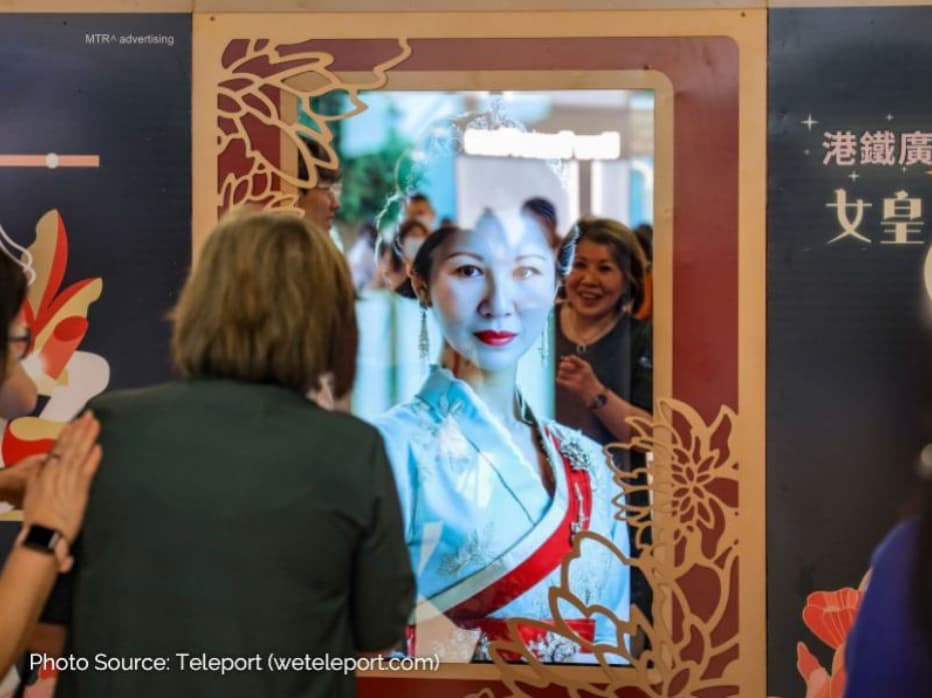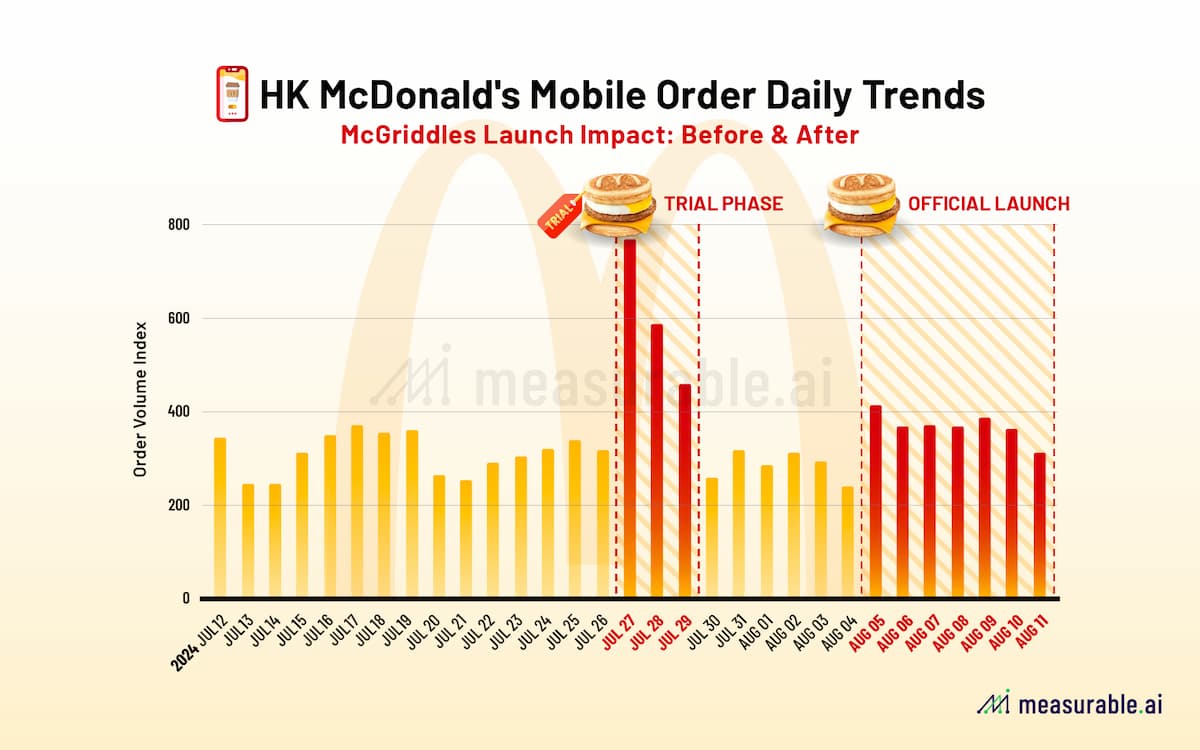The Future of AI in Advertising: What SMEs Need to Know
Want to save time?
Summarize this article in seconds with AI
Artificial Intelligence (AI) is steadfastly changing marketing and the advertising industry, offering new tools that are reshaping how companies connect with their audiences. In Hong Kong, a city known for its tech-savvy consumers, AI tools like programmatic advertising and AI content creation are enabling businesses to precisely target local audiences and create culturally relevant content quickly. As AI continues to evolve, it’s becoming an essential asset for businesses in Hong Kong looking to stay competitive and innovative as SMEs in this fast-paced market.
AI-Driven Content Creation: Boosting Efficiency & Personalization

AI is revolutionizing content creation, offering SMEs a way to produce high-quality, personalized content quickly and at scale. AI text generators and AI content generators, like ChatGPT4o and Stable Diffusion, are speeding up the process and enhancing the ability to tailor messages to specific audiences. For SMEs with a small team, there might not be a dedicated and experienced content writer. This is where AI can jump in and provide the expertise and well of information that may otherwise be unavailable.
Impact on SMEs: For businesses with limited resources, AI tools are game-changers. They enable companies to maintain a consistent brand voice across multiple channels without the need for a large team.
Practical Application: AI can help generate ad copy variations that speak directly to different customer segments, ensuring that each version resonates with its intended audience. This is especially useful for SMEs trying to maximize engagement with a diverse customer base.
Consideration: While AI can automate much of the content creation process, it’s important to ensure that the output remains authentic and engaging by passing it through with a set of human eyes. SMEs should view AI as a partner in creativity, not a replacement for the human touch.
New Horizons in Ad Formats: Pushing Creative Boundaries
AI is redefining existing ad practices; it’s opening up entirely new avenues for creativity and engagement.
Programmatic Creative: This AI-driven approach automates the design and deployment of ads, dynamically adjusting elements like visuals and text to suit different platforms and audiences. For SMEs, this means launching campaigns that are both highly targeted and adaptable, without the usual resource strain.

Source: TeleportInteractive Ads: AI-powered tools are making it possible to create ads that interact with users in real time, offering a more engaging experience. Whether it’s dynamic video content or augmented reality experiences, AI is expanding the creative possibilities for advertisers. One of the most creative ads in 2024, MTR launched a Mother's Day campaign utilizing cutting edge technology to produce AI generated realistic "queen portraits" of participants. Read more about this innovative campaign here.
Strategic Use of AI: Enhancing Campaign Effectiveness
Artificial intelligence is also proving invaluable in the strategic aspects of advertising, particularly in optimizing campaigns and improving targeting.
Predictive Analytics: AI’s ability to analyze vast datasets allows businesses to forecast which strategies will be most effective. This means smarter decision-making, better allocation of ad spend, and more targeted campaigns.
Audience Targeting: As privacy regulations shift and third-party cookies phase out, AI is helping businesses reach their target audiences through more ethical, data-driven methods.
Why It Matters: For SMEs, AI’s predictive capabilities can lead to significant improvements in campaign performance, ensuring that every marketing dollar is well spent.
Example: By analyzing past campaign data, AI can help SMEs identify what works and what doesn’t, allowing for continuous optimization and better results over time. For instance, a fashion retailer running digital ads on Facebook and Instagram uses AI to analyze past campaign data. The AI identifies that video ads featuring models wearing the latest collection perform best with women aged 25-34 in urban areas, especially when shown between 7-9 PM on weekdays. Based on this insight, the retailer adjusts future campaigns to focus on this demographic and format, resulting in a 20% increase in conversion rates and a 15% reduction in cost per acquisition, enabling continuous optimization and better overall results.
Long-Term Benefits: As AI tools become more sophisticated, they will offer even deeper insights into customer behaviour, enabling SMEs to create highly personalized and effective marketing strategies.
Navigating Ethical AI: Building Trust with Transparency
Imagine the same fashion retailer mentioned before using artificial intelligence to recommend products based on customer browsing history and purchase behavior. To build trust, the retailer clearly informs customers that their data is being used to improve their shopping experience, explaining that AI analyzes past purchases to suggest relevant items. By giving customers control over their data—allowing them to opt in or out of personalized recommendations—the retailer not only complies with privacy regulations but also strengthens customer loyalty.
As regulations tighten, this transparency and respect for privacy give the retailer a competitive edge, turning ethical AI use into a key differentiator in a crowded market.
Real Life Case Study - McGriddles Launch

Source: Measurable AI
The launch of McGriddles was a "smash hit" to say the least. Measurable AI just released an insightful case study on its mobile order performance with artificial intelligence analysis tools. It is a perfect demonstration of how brands can utilize AI-driven insights to enhance their marketing strategies. By analyzing transactional data related to McDonald’s McGriddles sales, Measurable AI uncovered key patterns and trends that could be invaluable for informing marketing decisions.
Key Insights:
Sales Timing and Patterns: The analysis revealed peak sales periods for McGriddles, providing insights into when consumers are most likely to purchase. Brands can leverage similar data to time their promotions more effectively, ensuring that marketing efforts coincide with high-purchase windows.
Customer Segmentation: The study identified distinct customer segments based on purchasing behavior. This information can help brands create more targeted and personalized marketing campaigns, increasing relevance and engagement with different audience groups.
Channel Effectiveness: The case study highlighted the effectiveness of different marketing channels in driving sales. By understanding which platforms yield the best results, brands can allocate their advertising budget more efficiently, maximizing their return on investment.
Application for Brands:
This case study illustrates the potential of AI tools to provide actionable insights that can guide marketing strategies. By understanding consumer behavior, optimizing the timing of campaigns, and focusing on the most effective channels, brands can make data-driven decisions that enhance the impact of their marketing efforts.
For more details on this case study, you can read the full article here.
 Cookie preferences
Cookie preferences








 Xiaohongshu Advertising Guide: How Can Hong Kong Brands Maximize Their Results?
Xiaohongshu Advertising Guide: How Can Hong Kong Brands Maximize Their Results?
 2x your advertising effectiveness: Master big data to optimize ad ROI
2x your advertising effectiveness: Master big data to optimize ad ROI
 Top 5 Best Ads in 2025 in Hong Kong
Top 5 Best Ads in 2025 in Hong Kong
 Hong Kong Outdoor Advertising Cost in 2026 | Adintime Report
Hong Kong Outdoor Advertising Cost in 2026 | Adintime Report
 Marketing Calendar 2026: Key Dates For Marketing Success
Marketing Calendar 2026: Key Dates For Marketing Success
 The Most Widely-Read Magazine and Newspaper in Hong Kong
The Most Widely-Read Magazine and Newspaper in Hong Kong
 Understanding YouTube Advertising Costs in 2025
Understanding YouTube Advertising Costs in 2025
 OOH /DOOH advertising in Hong Kong: Formats and Rates (2025 Update)
OOH /DOOH advertising in Hong Kong: Formats and Rates (2025 Update)
 How much does LinkedIn Advertising Cost? (2025 Update)
How much does LinkedIn Advertising Cost? (2025 Update)
 Top Social Media Platforms in Hong Kong 2025 | Usage Trends & Marketing Insights
Top Social Media Platforms in Hong Kong 2025 | Usage Trends & Marketing Insights